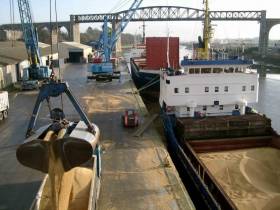Displaying items by tag: Exercise
Major Emergency Exercise In Drogheda Port This Morning
#DroghedaPort - Drogheda Port was the base of a major emergency planning exercise this morning (Thursday 27 October) as Garda units and other emergency services simulated a three-stage hostage scenario, as The Irish Times reports.
In the first stage, the Garda Water Unit aided armed response officers in boarding a vessel detected acting suspiciously. This was followed by a hostage-taking simulation on the dock, concluding with an armed assault on a port warehouse to free the hostages.
The operation, which was expected to conclude by lunchtime, was focused on evaluating the emergency response capabilities of relevant units and personnel.





























































